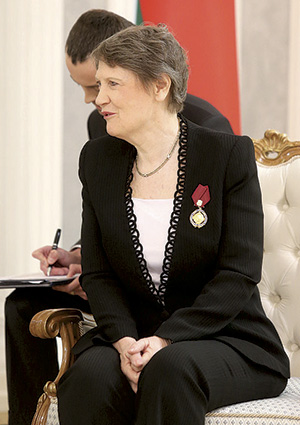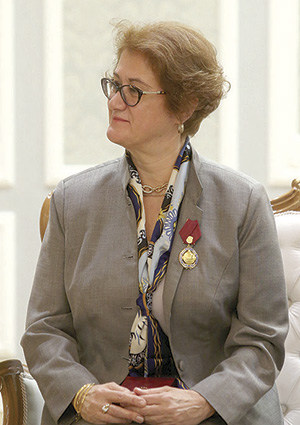
Helen Clark
| 
Cihan Sultanoglu
|
The Chernobyl tragedy is our tragedy; however, the experience gained in our response to it has enriched the whole world. We’re sincerely grateful to everyone for their assistance, but this is nothing compared to what we have done on our own. Since the moment of the accident, Belarus has spent a sum equivalent to 25 annual budgets to deal with the consequences. So, if it were not for the catastrophe we would have been twice as rich. However, it’s important that we overcome our attitude towards the problem, looking for solutions rather than seeing it as an unmitigated disaster. We’ve refused compensation to every individual who suffered but we have directly sent funds for the development of specialised medicine and rehabilitation of the affected regions.
The major outcome spoken of by the President during the meeting is that today we see a future for the lands that recently seemed lost forever. This is worth its weight in gold. At the solemn ceremony at Minsk’s school #130, unveiling the memorial plaque to honour the Secretary of the UN first humanitarian mission in Belarus, Ruth Waller, Helen Clark said that the Chernobyl-affected regions are being socio-economically restored. Ms. Clark is among a few international officials who personally attended the contaminated areas after the catastrophe at the power station. She made one more important point, first at the school and then at the international conference, entitled Thirty Years After Chernobyl. From Emergency to Revival and Sustainable Socio-Economic Development of Affected Territories. She emphasised that, without interested constructive interaction with the country’s leadership, the UNDP’s activity in Belarus wouldn’t be so successful. Understanding the global importance of the consequences of incidents similar to Chernobyl is imperative and it’s for this reason that we are willing to share our experience. The knowledge of Belarusian specialists and technology, developed by us, was also used after the accident at the Japanese Fukushima nuclear station.
By Vladimir Velikhov











